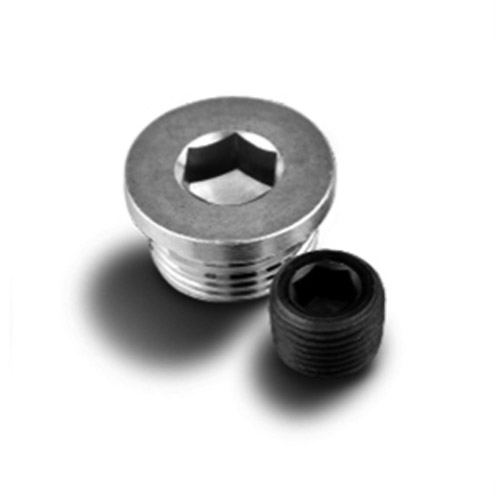

stud bolt fasteners
Nov . 05, 2024 05:47 Back to list
stud bolt fasteners
Understanding Stud Bolt Fasteners A Comprehensive Overview
Stud bolt fasteners play a crucial role in mechanical assemblies and structural applications across various industries. Their unique design and utility make them essential components in ensuring the integrity and stability of many structures, including bridges, buildings, and machinery. In this article, we will delve into the characteristics, applications, advantages, and considerations regarding stud bolt fasteners.
What are Stud Bolt Fasteners?
A stud bolt fastener is a type of fastener that consists of a threaded rod without a discernible head. Typically, stud bolts are used in conjunction with nuts to secure two or more components together. The design usually features threads running the entire length of the bolt, allowing for nuts to be fitted on either end. Stud bolts can vary in length, diameter, and thread pitch, providing flexibility for a range of applications.
Characteristics of Stud Bolts
1. Material Composition Stud bolts are commonly made from various materials including carbon steel, stainless steel, and alloy steel. The choice of material often depends on the application’s requirements, especially regarding strength, corrosion resistance, and temperature tolerance.
2. Thread Types There are different thread standards for stud bolts, such as Unified National Coarse (UNC), Unified National Fine (UNF), and metric threads. The choice of thread type affects the compatibility with nuts and the ability to handle specific loads.
3. Surface Treatments Many stud bolts undergo surface treatments to enhance their durability and resistance to environmental factors. Common treatments include galvanization, plating, and coating, which help prevent rust and wear.
4. Dimensions Stud bolts can be manufactured in various sizes, allowing for adaptability across different systems. This versatility is crucial in sectors like construction and manufacturing, where specific load-bearing requirements must be met.
Applications of Stud Bolt Fasteners
Stud bolts are utilized in numerous applications across various sectors, including
- Construction In construction, stud bolts are extensively used to secure beams, columns, and other structural elements, ensuring the overall stability of buildings and infrastructure.
- Pipelines Stud bolts are a common choice for joints in pipeline systems. Their ability to provide a strong, leak-proof connection makes them ideal for oil, gas, and water pipelines, crucial for transportation and distribution systems.
- Heavy Machinery Many industrial machines employ stud bolts to secure components that experience significant vibrations and forces, providing reliable performance and safety during operation.
stud bolt fasteners

- Marine and Aerospace In sectors like marine and aerospace, the emphasis on lightweight yet robust fasteners makes stud bolts an optimal choice, ensuring structural integrity without compromising weight.
Advantages of Stud Bolt Fasteners
1. Strength and Durability Stud bolts are designed to bear significant loads. Their robust structure makes them resistant to shear and tensile forces, ensuring long-lasting performance.
2. Ease of Assembly The design of stud bolts allows for easy installation and disassembly, making maintenance and repairs straightforward. With the use of nuts, adjustments can be made quickly and with minimal tools.
3. Greater Adjustability The lack of a head allows for better access in tight spaces. Stud bolts can be fully threaded, providing more versatility in adjusting the required length based on the application’s needs.
4. Cost-Effectiveness The simplicity of stud bolt production and their long service life can contribute to lower overall costs in terms of both initial investment and ongoing maintenance.
Considerations and Best Practices
While stud bolts offer many benefits, there are several considerations to keep in mind
- Proper Torque Ensuring that nuts are tightened to the appropriate torque specifications is critical. Under-tightening can lead to joint failure, while over-tightening may strip threads or cause material fatigue.
- Corrosion Resistance In environments prone to corrosion, selecting the right material and surface treatment is essential to prolong the lifespan of the fasteners.
- Quality Standards Always ensure that the stud bolts adhere to industry standards such as ASTM or ISO to guarantee performance and safety.
Conclusion
In summary, stud bolt fasteners are indispensable tools that contribute to the stability and reliability of various structures and applications. Their adaptability, strength, and ease of use make them a preferred choice across many industries. Understanding their characteristics, advantages, and best practices allows engineers and builders to make informed decisions that enhance safety and efficiency in their projects. Whether in construction, industrial settings, or other applications, stud bolts play a pivotal role in modern engineering solutions.
Latest news
-
Hot Dip Galvanized Bolts-About LongZe|High Strength, Corrosion Resistance
NewsJul.30,2025
-
High-Strength Hot Dip Galvanized Bolts - Hebei Longze | Corrosion Resistance, Customization
NewsJul.30,2025
-
Hot Dip Galvanized Bolts-Hebei Longze|Corrosion Resistance&High Strength
NewsJul.30,2025
-
High-Strength Hot-Dip Galvanized Bolts-Hebei Longze|Corrosion Resistance&High Strength
NewsJul.30,2025
-
Hot Dip Galvanized Bolts-Hebei Longze|Corrosion Resistance&High Strength
NewsJul.30,2025
-
Hot Dip Galvanized Bolts - Hebei Longze | Corrosion Resistance, High Strength
NewsJul.30,2025

